- Home
- Linda Howard
Now You See Her Page 5
Now You See Her Read online
Page 5
She wished she could put her finger on any one event that had obviously triggered the change, but she couldn’t. Nothing stood out in her mind. Why would she have noticed Clayton’s lone traffic light turning green? It did on a regular basis. She had noticed that her plants looked unusually happy, but at first had simply written that off as acclimation or her having stumbled across some hardy plants that could withstand her haphazard care. Maybe that was still all it was. Before, though, she had had to replace them on a fairly regular basis, but now, no matter what she did, they were thriving. Not even the move to the city had disturbed them. The Christmas cactus was blooming merrily as it already had several times this year, her bromeliads were fat and succulent, her ferns lush, and the finicky ficus kept its leaves no matter how often she moved it around the apartment.
She didn’t want to be different. She had seen her parents use their talent as an excuse for all sorts of god-awful, selfish, self-aggrandizing behavior, and seen the havoc they had wrought in other people’s lives. She didn’t want to be like that. She wanted to be a perfectly normal person who happened to have a talent for painting; that was different enough, but she could handle that. But an artist who screwed up electronic timers, affected nature, and saw ghosts—whoa, that was way out there. Not even her mother had gone that far, though she had gone through a period when she sought inspiration in the metaphysical. As Sweeney remembered it, that had consisted mostly of toking on a joint. Excuses were where you found them.
She sighed as she cleaned her brushes. The St. Lawrence was out of the question today, not that she had been making much progress anyway. The river didn’t fascinate her the way it once had, didn’t hold the lure of even the most ordinary face.
The hot dog vendor’s face popped into her mind, complete with sweet smile. Sweeney cocked her head, considering the image. He looked so young in her mind, despite the gray hair. How had he looked when he was twenty? Or ten? She thought of him as a six-year-old with here-and-there teeth, beaming at the world.
Absently whistling through her teeth, Sweeney reached for her sketch pad. It would be interesting to do him at different ages, a collage of faces on the same canvas and all of them his.
Some artists only did rough blocking to get the right proportions, but Sweeney was a good sketch artist, too. She usually spent more time than she should on the preliminary sketches because she couldn’t resist adding in shadings and details. To her delight, the vendor’s sweet expression didn’t elude her pencil this time. Everything fell into place, in a way it hadn’t done in a long time.
* * *
The vendor’s name was Elijah Stokes. Today he closed his stand at the usual time, counted the day’s take, and made out a deposit slip, then walked to the bank and stood in line for maybe fifteen minutes. He could have dropped the deposit in the overnight slot, but he liked to deal with humans, not holes. He liked to walk away with the stamped deposit receipt in his pocket, and the first thing he did when he got home was put the receipt in a file. He was real careful with his paperwork, partly because his mama had been that way, but mostly because, as he grew older, he saw that being careful with the details always saved him some trouble on down the line.
Elijah had been married to the same woman for forty-four years, until her death five years before. They had raised two fine boys, put them through college, and had the pleasure of seeing them become fine men, get good jobs, marry, and begin raising their own families as they had been raised. There was a lot of satisfaction in knowing you had done something right, and Elijah knew he had done right by his boys.
He could have closed his stand a long time ago; he had saved his money, made some small but careful investments, and seen them prosper. He didn’t need the money; with Social Security and his dividends, he could live just as he was living now, because most of what he made still went into savings. But every time he thought about retiring, he’d think about his boys, and the five beautiful grandchildren he had, and how every penny he saved now would help pay for their education later. It wouldn’t hurt him to work a couple of more years; seventy seemed like a good age to retire.
The rain began again as he walked home, driving people off the sidewalks. He just pulled his cap down more snugly on his head and trudged on. A little rain never hurt nobody. The clouds had brought on an early twilight, making the streetlights wink on. Summer was leaving in a hurry; he could smell the crispness of fall in the rain, as if it had come straight down from Canada. Spring and fall were his favorite seasons, because the weather was better, not too hot and not too cold. He hated winter; the cold made his bones ache. Sometimes he thought about going south to retire, but he knew he wouldn’t leave his boys and those grandkids.
He was still three blocks from home when the neighborhood began to deteriorate. Some rough characters hung around the streets these days. His kids wanted him to move, but he had lived there since the oldest was only a year old, and it was hard to leave all those memories. His wife had cooked thousands of mouth-watering meals in that old kitchen, and he had listened to his kids running across those worn floors. His wife had fixed the place up nice over the years, though he hadn’t done anything to it since she died and everything was beginning to look shabby. He just hadn’t wanted to make any changes. Somehow he could remember her better if he left things just the way she’d wanted.
Normally he paid more attention when he was walking, but this time, this one time, he let his guard down. A punk slid out of an alley to block his way, feral eyes gleaming. Elijah barely had time to notice the pimply complexion and bad teeth before the left side of his head exploded with pain.
The force of the blow knocked Elijah to the ground. The punk leaned down and grabbed the old man, dragged him back into the shadows. Maybe four seconds had lapsed since he had stepped out of the alley. He swung the club two more times, just because it felt good, even though the old man hadn’t struggled at all. Then he leaned down and grabbed the wallet from the old guy’s pocket and fumbled the money out, shoving it into his own pocket without bothering to count it. There weren’t any credit cards. Shit. In disgust he tossed the wallet aside and pelted out of the alley, head down. The whole operation, refined by practice, took about twenty seconds.
Elijah Stokes, a careful man, never carried much cash on him. The punk’s take was twenty-seven dollars. Elijah lay in the twilight shadows of the alley and felt the light rain on his face, but the sensation was oddly distant. In a brief flash of clarity he knew he was dying, and he wanted to think about his kids, but his brain felt funny and their faces just wouldn’t form. His wife, though ... ah, there she was, smiling her angel’s smile, and that was good enough for Elijah.
* * *
“This is Jeopardy!” the announcer crowed, dragging out each word. Sweeney sat down in her ultra-comfortable, overstuffed chair and curled up with a big bowl of popcorn in her lap. The three contestants were identified, and as usual she watched their faces, not even hearing their names. The one in the middle, she thought. He would win. He looked quick, his eyes lively with intelligence. She liked to play a game with herself, trying to guess beforehand which contestant would win. Lately it hadn’t been much of a challenge.
The streak of luck was getting on her nerves. Traffic signals were one thing, but if the weird stuff started affecting Jeopardy!, she was going to get testy. She loved the show.
Alex Trebek came out and began the game by reading the categories. “Mystery Writers.”
“Dick Francis,” said Sweeney, popping a salty kernel in her mouth.
“Potent Potables.”
“Absinthe,” she responded.
“British Royalty.”
“Charles the Second. This is too easy.”
“Science.”
“Cold fusion—you wish.”
“The States.”
“Delaware. Try not to be so obvious.”
“And finally, Deep Space.”
“Quasars, of course.” It was another little game she played, trying
to guess what the questions would be before she heard the clues. Lately she had been doing really well at that, too.
The defending champion began with Potent Potables. Alex read the clue. Stumped, the contestant stared at the board as if he could force it to give him the answer. The buzzer sounded, and the contestant in the middle rang in. “What is absinthe,” he said.
Sweeney reached for the remote control and turned off the television without waiting to hear Alex confirm that was the correct question. She knew it was right. These days she was always right.
She felt jittery, more unsettled than she could remember ever feeling before. Getting to her feet, she walked to the window and stared out at the rain. She loved rain; normally it soothed her. Tonight the magic wasn’t working.
Surely falling in lust with Richard hadn’t upset her to this extent. She was surprised, sure, because such a thing normally didn’t happen to her, but after all it wasn’t such a big deal. Women lusted after men all the time. She chose not to act on it, and that was that. The excitement had been heady, though. She could understand how people came to act irrationally while they were under the influence, so to speak. Hormones were as potent as whiskey, and twice as sneaky.
No, she thought, it wasn’t Richard and her unusually strong reaction to him. She had made her decision on that and put it out of her mind, sort of. This was something else, a bone-deep uneasiness that had nothing to do with the state of her ovaries. She felt sad, almost grief-stricken, and she didn’t know why.
She tried to do some more sketches, but couldn’t concentrate. Television held no appeal, but finally she settled down with a book, wrapped up in a blanket, and managed to get in a good hour of reading before she became so sleepy her head kept drooping. It was only nine o’clock, but Sweeney figured if she was that sleepy, then she needed to be in bed.
The on-and-off rain was on again, and she crawled under the covers with a sigh of pure pleasure. The electric blanket had her bed nice and warm; crawling into it was like crawling into a cocoon. It wasn’t as nice as Richard’s coat, but it was still wonderful. She stretched out, wriggling her cold toes against the warm blanket, and in minutes was asleep.
A little after midnight she began to toss restlessly under the covers, making pushing motions with her hands. She muttered sounds that weren’t quite words. Her head moved back and forth on the pillow, and her eyelids fluttered. Her breath rushed in and out of her lungs as if she had been running.
Then she stilled. Even her breathing stopped for a long moment.
Her breathing started again. Her eyes opened, the expression in them was distant. She got out of bed and silently, without turning on any lights, walked barefoot through the apartment to her studio. She didn’t turn on any lights, but the wash of colorless light from the street was enough for her to make her way through the big, cluttered room without bumping into anything.
Several easels stood around the room, all wearing canvases in varying stages of completion. She took one canvas down and laid it on a table, then put a blank one in its place on the easel.
Her movements were precise as she took a tube and squeezed a glob of bright red onto her palette. The first brushstroke on the blank expanse of canvas left behind a violent streak of red. Next she reached for the black. There was a lot of black.
She stood there for two hours, her brush moving with silent skill. She didn’t hear the sirens as a fire truck raced down the street beneath her window. She didn’t feel the chill on her bare feet. Not once did she shiver.
Suddenly she sagged, like a balloon going flat. She dipped a brush into the black one more time and added a touch down at the bottom. Then she carefully placed the brushes in the turpentine and left the studio as silently as she had entered it, retracing her steps through the dark apartment, a slim, barefoot woman in pajamas, with curly hair rioting around her shoulders. She moved as quietly as a ghost, back to her bedroom and the warm nest of her bed.
* * *
The alarm went off at six-thirty. Sweeney fumbled a hand out from under the cover and swatted the clock, stopping the obnoxious noise. The smell of coffee teased her out of bed. Dragging on a pair of thick socks, she lumbered like Frankenstein’s monster into the kitchen. As she did every morning, she sent up a silent thank-you to God for electronic miracles and waiting coffee. With the first cup in hand, the first too-hot sip warming her on its way down her throat, she was sufficiently awake not to spill any of it on her way to the shower.
Ten minutes later, awake and warm, dressed in sweats, and with the now-drinkable coffee in her hand, she went into the studio, her most favorite place in the world. The room was in a corner of the building, which meant it had windows on two walls. Actually, the two walls were windows, great big tall ones that looked like factory windows, though she didn’t think the building had ever been used for manufacturing. On sunny days, the light was fantastic.
It was still too early for that, though, so she flipped the light switch, flooding the room with almost blinding light. The lights she had installed were huge round metal fixtures that hung from the ceiling and beamed down an incredible amount of wattage. Shadows were nonexistent in the room, which was great, but she preferred natural light.
She knew her studio intimately. The first thing she noticed was the canvas on the table. Frowning, she walked over. It was the St. Lawrence canvas, and she knew she hadn’t put it on the table; she had left it on the easel. A chill went through her. Who had moved the canvas, and when? Another canvas stood in its place now, and Sweeney stared at it for a moment, strangely uneasy, before walking around the easel to see what it was.
She went very still, blue eyes wide as she stared at the canvas. Her lips were white, her fingers clenched on the coffee cup.
It was ugly. It was the ugliest thing she had ever seen. A man sprawled in the dirty, garbage-filled space between two buildings. She knew exactly what she was looking at, even though the buildings were nothing more than black hulks on either side that somehow gave the appearance of height. Something was wrong with the man’s head. There was a little blood pooled around his nostrils, and a thin line of it ran from his left ear, curving under the ear to drip into his gray hair.
For a moment she stared at the painted face without recognition. The eyes were open, blank, glazed with the film of death. But then she saw the facial structure she knew so well, having sketched it so often.
It was the old hot dog vendor.
Her first irrational thought, rushing through her brain on a flood of rage, was that someone had broken into her apartment and painted the disturbing picture. Logic pointed out the idiocy of that scenario. For one thing, the style, though not as detailed as usual, was her own. That, and her signature scribbled in the lower right corner of the canvas, told her she had done the painting.
The only problem was, she didn’t remember any of it.
CHAPTER
FOUR
At nine, the telephone rang. Sweeney was still numb with shock, and so cold she couldn’t seem to get warm no matter how much coffee she drank. She’d kept edging the thermostat upward until it was sitting on eighty, and she refused to turn it higher. The local weather forecast, delivered by a woman so chirpy Sweeney felt like smacking her, had told her the day would be beautiful, with highs in the mid-seventies. People outside were walking around in short sleeves, children were still wearing shorts, and she was freezing. She felt as if her inner core was pure ice, the cold coming from inside rather than out.
She couldn’t settle down to paint anything, not even something unsatisfactory. Every time she saw that ugly painting of the old hot dog vendor, she wanted to weep, and she wasn’t a leaky-eye type of woman. But she felt so sad, almost as if she were in mourning, and when the phone rang, she grabbed it up, glad for a change, for the distraction.
“Candra here. Is this a good time?” Candra’s warm voice sounded in her ear.
“As good as any.” Sweeney pushed an unruly curl out of her eyes. “About yesterday—”
“Don’t apologize,” Candra interrupted, laughing. “I should be apologizing to you. If I had stopped to think, I would have known immediately you wouldn’t be able to stand them. A little of Margo goes a long way, though in her defense, Carson is enough to give a saint a bad attitude.”
“He has the hots for you.” Damn, she hadn’t meant to say that. She liked Candra, but they had never crossed the line between friendly business associates and friends. Intimate conversation wasn’t her strong point, anyway.
Candra evidently had no such hang-ups. She laughed dismissively. “Carson has the hots for anything female. To say he’s like a dog would insult the dog community. He has his uses, though, which is why Margo stays with him.”
Sweeney didn’t say anything, because she knew anything that came out of her mouth would be uncomplimentary, and the McMillans were not only in Candra’s social circle, they were her clients. Insulting them wouldn’t be diplomatic. Keeping silent was a strain, but she managed.
“I saw you get in the car with Richard yesterday,” Candra said after a slight pause, and there was a faint hesitancy in her tone.
Oh, boy. Sweeney’s radar began beeping an alarm. “It was starting to rain and I had the portfolio, so he gave me a lift home.” She clutched the phone, hoping Candra would leave it there and go on to another subject.
No such luck. “He can be very courteous. It’s that country-boy Virginia upbringing.”
“I didn’t know he was from Virginia.” That seemed like a safe thing to say.

 Mr. Perfect
Mr. Perfect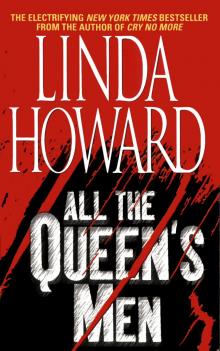 All the Queen's Men
All the Queen's Men Midnight Rainbow
Midnight Rainbow Diamond Bay
Diamond Bay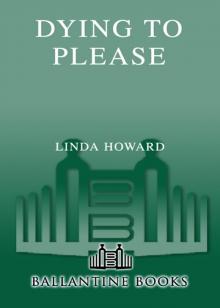 Dying to Please
Dying to Please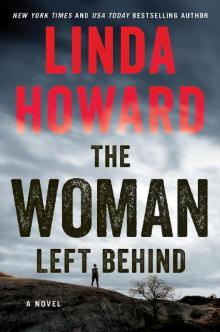 The Woman Left Behind
The Woman Left Behind Come Lie With Me
Come Lie With Me Drop Dead Gorgeous
Drop Dead Gorgeous To Die For
To Die For Ice
Ice Overload
Overload Shadow Woman
Shadow Woman Veil of Night
Veil of Night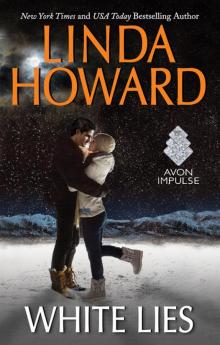 White Lies
White Lies Son of the Morning
Son of the Morning The Complete Mackenzies Collection
The Complete Mackenzies Collection Lake of Dreams
Lake of Dreams DeathAngel
DeathAngel Loving Evangeline
Loving Evangeline Burn
Burn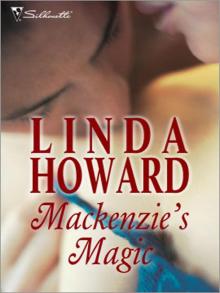 Mackenzie's Magic
Mackenzie's Magic Against the Rules
Against the Rules Burn: A Novel
Burn: A Novel A Lady of the West
A Lady of the West Almost Forever
Almost Forever Open Season
Open Season Now You See Her
Now You See Her Prey
Prey Cry No More
Cry No More Sarah's Child
Sarah's Child Angel Creek
Angel Creek Death Angel
Death Angel Kill and Tell
Kill and Tell The Touch of Fire
The Touch of Fire Raintree: Inferno
Raintree: Inferno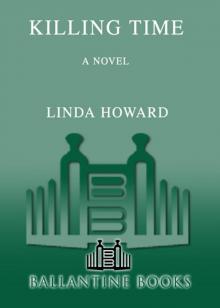 Killing Time
Killing Time Cover of Night
Cover of Night Tears of the Renegade
Tears of the Renegade Heartbreaker
Heartbreaker The Cutting Edge
The Cutting Edge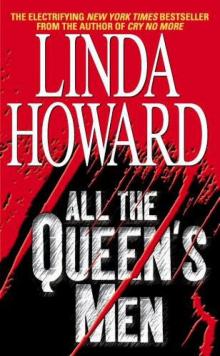 All The Queen's Men cs-2
All The Queen's Men cs-2 Veil of Night: A Novel
Veil of Night: A Novel Blood Born
Blood Born The Complete Mackenzie Collection
The Complete Mackenzie Collection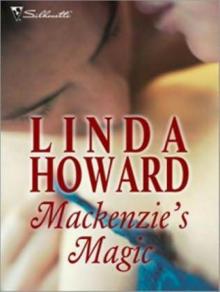 Mackenzie's Magic m-4
Mackenzie's Magic m-4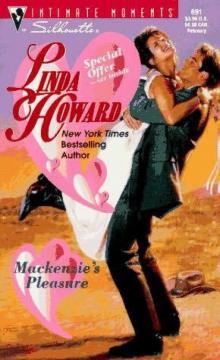 Mackenzie's Pleasure m-3
Mackenzie's Pleasure m-3 Raintree
Raintree A Game Of Chance m-5
A Game Of Chance m-5 Prey: A Novel
Prey: A Novel Lethal Attraction: Against the RulesFatal Affair
Lethal Attraction: Against the RulesFatal Affair The Raintree Box Set: Raintree: InfernoRaintree: HauntedRaintree: Sanctuary
The Raintree Box Set: Raintree: InfernoRaintree: HauntedRaintree: Sanctuary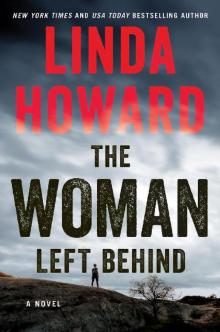 The Woman Left Behind: A Novel
The Woman Left Behind: A Novel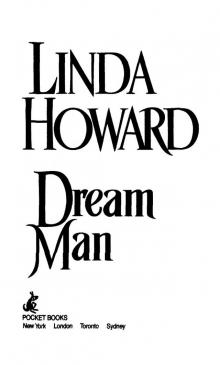 Dream Man
Dream Man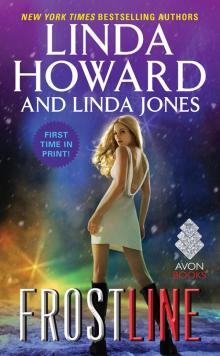 Frost Line
Frost Line Kill and Tell cs-1
Kill and Tell cs-1 Shadow Woman: A Novel
Shadow Woman: A Novel Mackenzie's Mission
Mackenzie's Mission Strangers in the Night
Strangers in the Night Running Blind
Running Blind